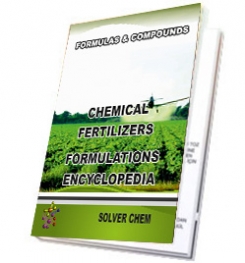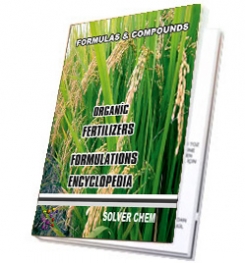Potassium Sulfate is a very important product. It's used to supply potassium. Conventional agriculture, for the most part, supplies potassium with a muriate of potash or what's called 0-0-60. We don't handle that because it has chlorides. It's potassium chloride which is very detrimental to soil biology.
But potassium sulfate provides not only 50 units of potassium, it also has 17 units of sulfur, so when you add that up, you've actually got a lot more fertilizer for what you're paying for. It has a lot more energy than the potassium chloride and what we find is that 100 lbs. of potassium sulfate will be sufficient to provide the potassium for a whole year when the potassium's quite low.
For those concerned about their budget in regards to the cost difference between 0-0-60 vs. 0-0-50, what we suggest is to take the same amount of budget (dollars per acre) that would normally be spent with 0-0-60 and put it into the potassium sulfate 0-0-50. You'll get less product, but you'll get a better product that provides better effect for the soil.
Potassium can also be supplied with compost and manure, so it shouldn't be put on unless you know that you do need potassium.
At this point potassium prices have remained pretty high globally, and potassium sulfate is no exception. For that reason, it really is important to see if you truly need it before putting it on.
One of the benefits of potassium sulfate is that it's not an extremely high pH fertilizer product. Potassium chloride, on the other hand, is quite a bit higher in pH and has the tendency when used over time to push the pH high and that can be misleading for people that look at pH and then don't put any calcium or limestone down. Potassium sulfate, because of the sulfate actually, will not push the soil pH. It's more of a neutral pH, so it's quite superior just from the aspect of the pH.
Some crops are very potassium-loving, so we would use a little higher rate than 100 lbs. per acre. Some of the things that come to mind include potatoes and pumpkins. Those really use a lot more potassium, so we would go up to 200, sometimes even 400 lbs. of potassium sulfate depending on what the soil condition is what crop is being used.
A lot of soils, especially smaller market gardens, don't need it. But a lot of the larger scale agricultural operations find a need for potassium sulfate. They show up as being short.
RELATED TAGS: WHAT IS POTASSIUM SULFATE,WHERE TO USE POTASSIUM SULFATE,POTASYUM SULFATE FERTILIZERS MAKING,COMBINATION OF POTASSIUM SULFATE,FORMULAS OF POTASSIUM SULFATE FERTILIZERS,WHERE TO USE POTASSIUM SULFATE,HOW TO COMPOUND POTASSIUM SULFATE,PLANTS,FERTILIZERS,LIQUID FERTILIZERS,POWDER FERTILIZERS,FORMULAS OF FERTILIZERS.
SOLVER CHEM.
But potassium sulfate provides not only 50 units of potassium, it also has 17 units of sulfur, so when you add that up, you've actually got a lot more fertilizer for what you're paying for. It has a lot more energy than the potassium chloride and what we find is that 100 lbs. of potassium sulfate will be sufficient to provide the potassium for a whole year when the potassium's quite low.
For those concerned about their budget in regards to the cost difference between 0-0-60 vs. 0-0-50, what we suggest is to take the same amount of budget (dollars per acre) that would normally be spent with 0-0-60 and put it into the potassium sulfate 0-0-50. You'll get less product, but you'll get a better product that provides better effect for the soil.
Potassium can also be supplied with compost and manure, so it shouldn't be put on unless you know that you do need potassium.
At this point potassium prices have remained pretty high globally, and potassium sulfate is no exception. For that reason, it really is important to see if you truly need it before putting it on.
One of the benefits of potassium sulfate is that it's not an extremely high pH fertilizer product. Potassium chloride, on the other hand, is quite a bit higher in pH and has the tendency when used over time to push the pH high and that can be misleading for people that look at pH and then don't put any calcium or limestone down. Potassium sulfate, because of the sulfate actually, will not push the soil pH. It's more of a neutral pH, so it's quite superior just from the aspect of the pH.
Some crops are very potassium-loving, so we would use a little higher rate than 100 lbs. per acre. Some of the things that come to mind include potatoes and pumpkins. Those really use a lot more potassium, so we would go up to 200, sometimes even 400 lbs. of potassium sulfate depending on what the soil condition is what crop is being used.
A lot of soils, especially smaller market gardens, don't need it. But a lot of the larger scale agricultural operations find a need for potassium sulfate. They show up as being short.
RELATED TAGS: WHAT IS POTASSIUM SULFATE,WHERE TO USE POTASSIUM SULFATE,POTASYUM SULFATE FERTILIZERS MAKING,COMBINATION OF POTASSIUM SULFATE,FORMULAS OF POTASSIUM SULFATE FERTILIZERS,WHERE TO USE POTASSIUM SULFATE,HOW TO COMPOUND POTASSIUM SULFATE,PLANTS,FERTILIZERS,LIQUID FERTILIZERS,POWDER FERTILIZERS,FORMULAS OF FERTILIZERS.
SOLVER CHEM.
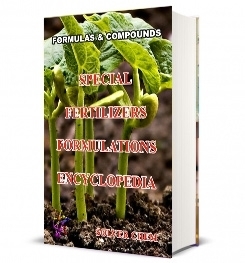
|
|
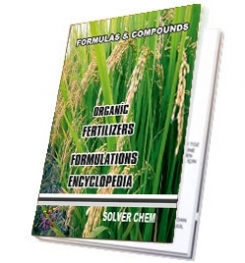
|
|
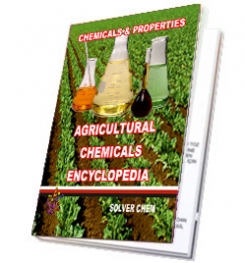
|
|

